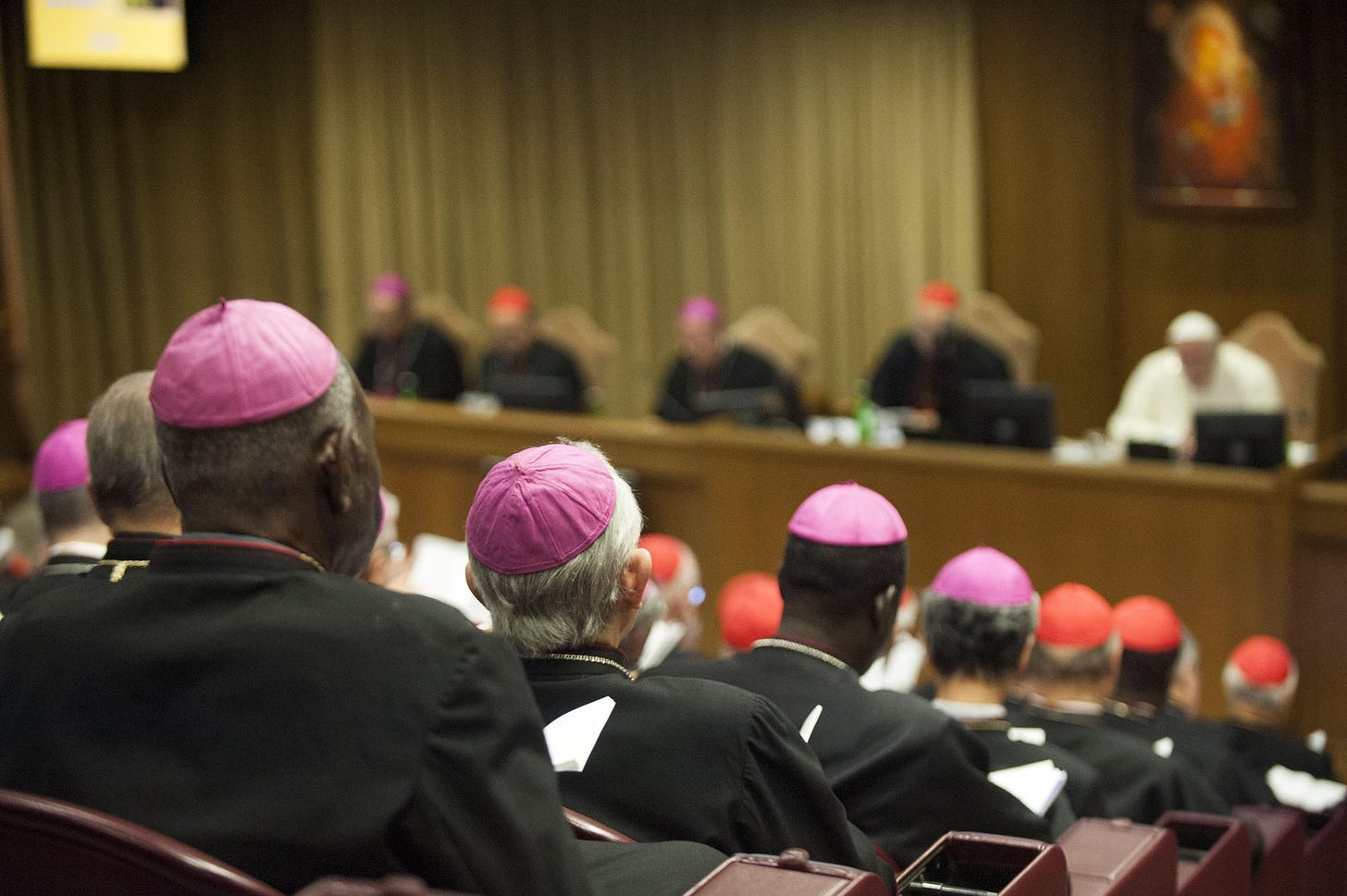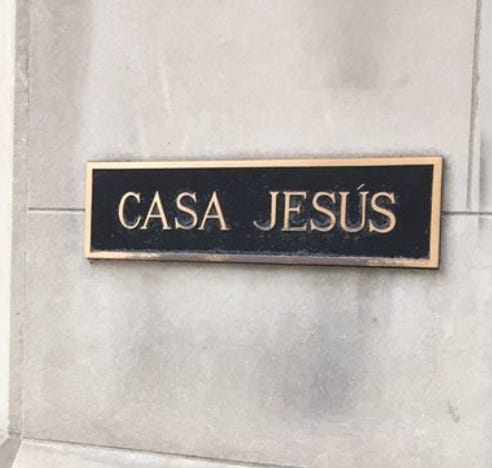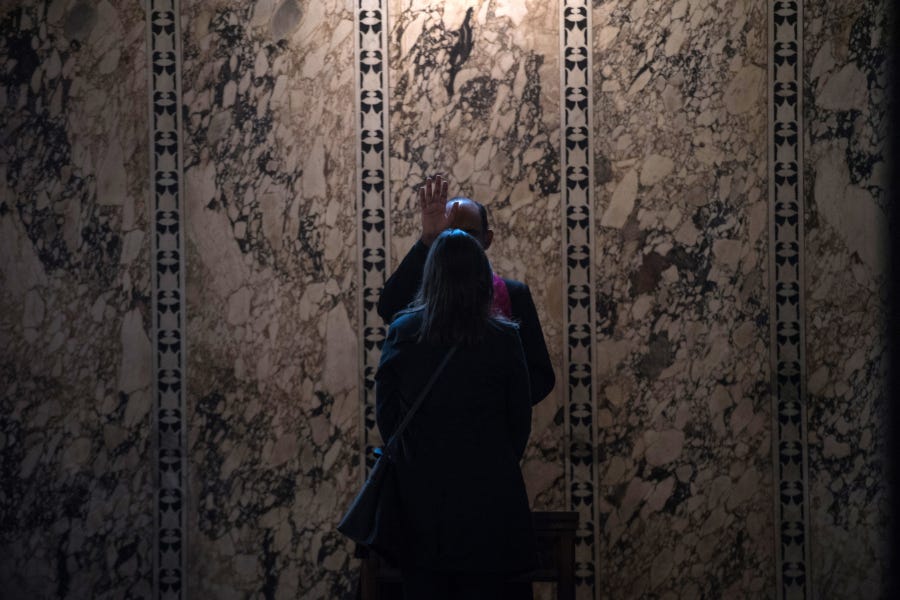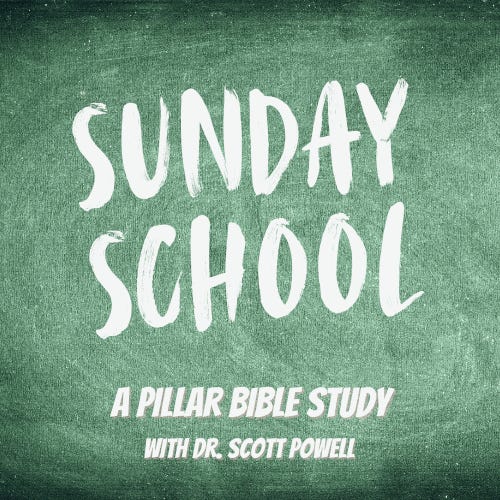
Pope Francis announced Sunday that he is extending the global synod on synodality by an extra year, creating a second session for the synod’s final meeting, which will now be held in October 2023 and 2024.
The pope’s decision to schedule an additional phase for the ordinary general assembly of the synod of bishops has been variously interpreted by pundits. Some have said Francis’ move underlines the importance of the synodal process over its results, others that it is setting the stage for a new ecclesiology entirely, turning the concept of a synod into a kind of slow-motion ecumenical council.
But could Francis’ decision be a reflection of more practical concerns — or instead be part of a papal penchant for punting controversial decisions into the distance?
“The fruits of the synodal process underway are many, but so that they might come to full maturity, it is necessary not to be in a rush,” Francis said at the end of his Angelus address on Sunday. “Therefore, in order to have a more relaxed period of discernment, I have established that this Synodal Assembly will take place in two sessions.”
First announced in 2020 and having now moved through local and regional phases, the global synodal process has faced criticism for a lack of participation by the faithful at the local level.
Although Francis set his own target for the process as needing “to pass beyond the 3 or 4 percent that are closest to us,” local and national participation rates in many Western countries were 1% or less of local Catholics.
Dioceses on different sides of the world reported difficulties in engaging may lay faithful in the process, or capturing enthusiasm among Catholics on the peripheries of Church life: “Considering the process as a whole, the principal theme that occurred to the [diocesan] committee was that of apathy,” one diocese in New Zealand concluded.
Another American diocese noted that parish synodal sessions saw “greatest participation from Caucasian adults, with more women than men in attendance, and an average age of 60 and over.”
But while Western European bishops’ conferences have repeatedly flagged subjects like acceptance of homosexuality and ending clerical celibacy, dioceses in other regions, notably parts of Africa, claimed much higher synodal participation rates (one Nigerian diocese claimed some 20% of local Catholics took part) and focused on themes such as the persecution of Christians and faith in the Church’s teachings and structures.
At the same time, the synod’s global secretariat in the Vatican has come under fire for appearing to highlight a very narrow section of the views making it back to Rome, profiling “works of art” featuring calls for recognition of LGBTQ+ identity and pride, the ordination of women, and slogans such as “we desire to be on advisory councils.”
Critics of the global process have alleged, despite contrary assertions from the secretariat, that an agenda is being formed by senior organizers ahead of the opening of the general assembly in Rome next year. Some have pointed to the Church in Germany as a key influence on the agenda.
Many synod-watchers have noted the public support of the synod’s secretariat, Cardinal Mario Grech, for the controversial German synodal way, a set of meetings that have prompted several Vatican interventions, especially after delegates voted for formal lay governing structures for the Church, the blessing of same-sex unions in churches, and intercommunion with Protestants.
The German bishops have also made visits to Grech’s offices in recent weeks, and senior members of the conference have been granted a series of private audiences with Pope Francis, giving rise to the impression among some Vatican watchers that the entire global synodal process has a kind of “preferential option” for the Germans.
The synodal way’s leadership were also among the first to welcome the announcement of the extended synodal timeline this week, praising Francis for recognizing the “the need for change” as the Church faces “global challenges.”
While official Vatican media has stressed that adding an extra year to the general assembly’s timetable is about emphasizing “the method and process as more important than the individual themes,” some around Rome are quietly suggesting that the gap is simply too great between synodal participation from around the world and the practical proposals organizers hope to see discussed.
Of course, an alternative theory for the pope’s decision to add a year to the synodal process is that Francis decided one assembly, and one set of working documents, in 2023 would simply not be enough time and space to forge a consensus among the attending bishops.
With expectations mounting among bishops in countries such as Germany, Luxembourg, and Belgium that the synod will end in formal Roman endorsement for radical changes to Church teaching on faith and morals, an growing number of bishops from other parts of the world have voiced concerns about the direction and speed of their version of the synodal agenda.
While Francis said on Sunday that he wants to see “a more relaxed period of discernment” during the synod’s final stage, few expect the sessions themselves to be “relaxed.”
The more ordinary expectation is that, following often-tense sessions at recent synodal assemblies on the family, young people, and the pan-Amazonian region, the synod on synodality’s climax will revisit many of the same controversial issues that led to previous divisions, and saw disappointment among progressives over final documents which failed to push for radical reforms.
But while some are reading Francis’ decision to add a year to the synodal timetable as a bid to forge more consensus, it is also possible the pope is trying to put off a confrontation he might now consider inevitable.
📰
Critics of the synodal process have pointed to Pope Francis’ failure to rebuke more formally the German synodal way and even, on occasion, his appearance of distancing himself from his own curia’s efforts to rein in challenges to Church teaching.
But while some have accused the pope of implicitly supporting a radical agenda for reform in the Church by failing to slam the door on it, others — notably the leaders of the German synodal way — have been among Francis’ most strident critics, lamenting that the pope has not endorsed their agenda.
During the last session of the synod of bishops, ostensibly meant to discuss the pastoral needs of Amazonia, the ordination of women to the diaconate and the admission of married men to the priesthood emerged as key flashpoints, and appeared to enjoy considerable support from the German bishops in attendance.
When the final synodal document was released, it merely noted the discussion of both issues, instead of calling for them outright, as did Francis’ own post-synodal exhortation. In response, the Central Committee of German Catholics, the lay group running the German synodal way together with the bishops, denounced the pope for failing to “find the courage to implement real reforms.”
Indeed, when confronted directly with calls to adopt radical reforming measures, the pope has often chosen to punt the issue into the future — he has, for example, twice deferred the subject of female deacons to study commissions.
With tensions between the Vatican and different bishops’ conferences simmering on a range of issues, including same-sex unions and intercommunion, some around Rome have speculated that Francis may have intended the multi-year synodal process to be a way of deferring all manner of thorny conversations until a future date — perhaps even to a future pontificate.
As the synodal process shifts to preparations for the Rome meeting next year, it now seems increasingly unlikely that an acceptable compromise could be found in that time — if ever.
It is possible that Francis’ decision to add a year to the synodal timetable is less about helping the Church “relax” into the synodal process, and more a bid to postpone what could now be an inevitable showdown at its eventual end.
If that is the pope’s thinking, even more extensions could be on the cards, and a “permanent synod” could indeed become a reality, at least for the duration of the Francis pontificate. But if it does, prolonging the synodal journey might largely seem a path to avoiding the synod’s most obvious destination.



